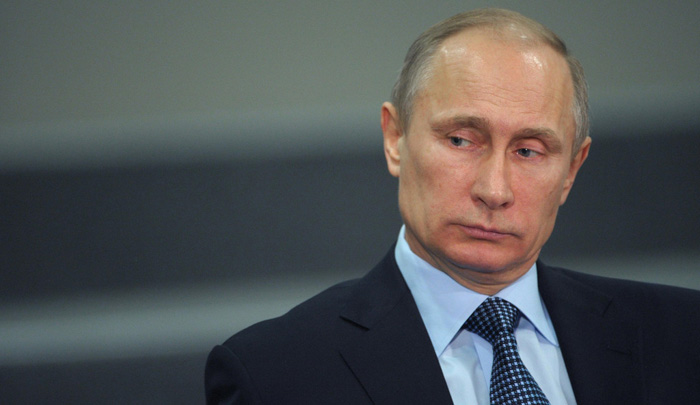Guy Verhofstadt
BRUSSELS – At least six crises are testing Europe’s stability: regional chaos caused primarily by the war in Syria, a potential British exit from the European Union, an influx of refugees on a scale not seen since World War II, unresolved financial challenges, Russian expansionism, and the return of nationalism to mainstream politics.
Russian President Vladimir Putin has intentionally exacerbated at least four of these crises. In addition to his adventurism in Ukraine, he has injected obstructionism into European politics through his support of populist and euroskeptic parties, escalated the conflict in the Middle East by his military intervention in Syria and, as a consequence, aggravated the refugee crisis. The EU must wake up to the threat Putin poses and begin to counter his aggression.
The nationalism sweeping Europe, indeed, has been partly fueled by Russian funding of far-right political parties, the rise of which has prevented Europe from crafting a collective response to the refugee crisis. In the United Kingdom, the pro-Putin UK Independence Party is nipping at Prime Minister David Cameron’s heels, so the government refuses to commit to taking Britain’s fair share of refugees. Similarly, Sweden has closed its borders, in response to the far-right Sweden Democrats’ rapidly rising poll numbers. This sorry calculus is being carried out across the continent.
Meanwhile, Putin has derailed the international community’s efforts to negotiate a political solution to the conflict in Syria, the root cause of the refugee crisis. Russia’s support of the Syrian government’s assault on Aleppo has stymied the peace process, which depends on the cooperation of global players, regional powers, and the moderate opposition forces that Putin is bombing.
On February 15, at least 50 people, including women and children, were killed by missile attacks on schools and hospitals in northern Syria, according to the United Nations. The French government called the attacks “war crimes” – and rightly so. Russia denied involvement, but fragments of Russian-built missiles were found at the scene. The aid group Médecins Sans Frontières has said that only Russia or the Syrian government could possibly be responsible for the attacks.
Moreover, the fighting around Aleppo has displaced about 50,000 people, according to the International Committee of the Red Cross. Many of these desperate Syrians – consisting primarily of those who could not afford to flee sooner – will head toward Turkey and onward to Europe.
Russia is dropping bombs even as Putin claims to be supporting a ceasefire. Clearly, he cannot be taken at his word, as the Kremlin’s record in Ukraine also shows. With the United States distracted by its presidential election campaign, Europe’s leaders find themselves huddled alone, with the Russian bear gnawing at the door. It is time for immediate action.
First, European governments must put a swift halt to Russian financing of political parties within Europe. If necessary, the US Central Intelligence Agency should be asked to assist in identifying how these funds are transferred. The effort must be sustained until the pipelines funneling Russian cash to European parties are shut down for good.
Second, the EU must prepare to impose enhanced economic sanctions on Russia. UN Security Council Resolution 2254, which provides a road map for the Syrian peace process, obliges all actors, including Russia, to stop indiscriminate attacks against civilians. If Russia fails to abide by its commitments, these sanctions should be triggered.
Third, the EU must work with Turkey and other regional actors to establish safe havens on the Turkish-Syrian border, where refugees from Aleppo and elsewhere are headed. While this would entail some risk, there are no credible alternatives.
Finally, Europe must stop making Putin’s job easier for him and implement a collective approach to the influx of refugees. As part of an emergency response, a European frontier force and coast guard must be established and charged with helping Greece manage its border, as well as saving lives and processing new arrivals.
At the same time, EU funds must be used to improve conditions in the refugee camps in Turkey, Jordan, and elsewhere, to provide their residents with at least some hope of being able to meet their basic needs. And, yes, European leaders must agree to take a fair share of those in need, by allowing refugees to apply for asylum in the EU directly from the countries in which they are currently residing.
George Soros was right when he recently argued that the biggest long-term threat to the stability of the EU is Russia. But he was wrong to suggest that the EU is set to buckle and collapse under the weight of the multiple crises it faces. It is time for Europe to assert itself, harness its economic might, and use it to put Putin in his place.







Comments